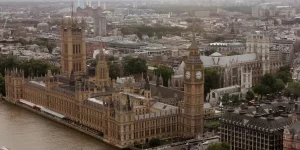Last month, the EU carbon emissions price hit a 10-year high. As the price of carbon reached €18 per tonne [1] it prompted many to question what UK carbon pricing policy might look like post Brexit. This uncertainty presents a problem for both generators and suppliers as they attempt to forecast for the years ahead.
Lame Ducks
The major criticism of 1970s industrial strategy was the Government’s ineffective investment decisions, leading to industrial strategy being associated with government backing ‘lame ducks’. In 1962, the National Economic Development Council (NEDC) was formed. The overriding objective of the NEDC was to create ‘an efficient full-employment economy capable of sustained growth.’[2] Thus, the Government subsidised existing staple industries, such as textiles and shipbuilding, to avoid vast structural unemployment. These companies became increasingly uncompetitive on global markets. A lack of innovation, coupled with the oil crisis of 1973, resulted in ongoing and costly subsidies to ‘lame duck’ industries, rather than a promotion of economic vitality.
Despite the green paper openly acknowledging of the pitfalls of the past, questions have been raised to whether enough is being done to avoid them. Promisingly, the green paper refers to a ‘horizontal’ approach, focused on broader investments in skills, research and infrastructure to benefit the wider economy [3]. Current Business Secretary, Greg Clark, has stated his aim to create ‘the right conditions for new and growing enterprise to thrive.’ [4] However, this is alongside an Industrial Strategy Challenge Fund [5] which enables companies within certain sectors to apply for financial support. A report by the BEIS select committee suggests these sectoral deals offered by government risk a return to previous mistakes, where benefits are felt by certain industries – which will not necessarily be competitive in future – at the expense of the wider economy. [6]
Coherent and Consistent?
Another notable issue with previous policy was consistency and coherency. The initial conception of the NEDC was a means to open a dialogue between industries and the government. However, the forum led to exacerbated tensions between them. Furthermore, industrial strategy primarily aimed for competitiveness and increases in private sector investment. Through the involvement of unions, and the attempt to garner regional votes, these aims drifted from focus though. And whilst the NEDC was influential during the 1970s, Margaret Thatcher largely ignored the NEDC throughout the 1980s. It was eventually abolished in 1992 by John Major.
The Green Paper’s extended vision and financial commitment is desirable, but the reality of achieving adequate funding is questionable. Long-term investment in infrastructure could be the key to high productivity. Yet, compared to other OECD countries, Britain levels of investment has continuously ranked in the bottom 25 per cent [7]. Brexit could limit the UK’s access to the European Investment Bank, while the Government has been reticent to borrow despite low interest rates.
It is also questionable whether the next Prime Minister will have the same appetite for industrial strategy as Theresa May. A report by the Industrial Strategy Commission [8] states that, in order to achieve its aims, the Industrial Strategy should span decades not years. However, it is unclear whether the next Conservative leader would want to continue with a relatively interventionist programme, while a left-leaning Labour Party would want to see substantially more state intervention.
Discover how Brevia can help you and your organisation by contacting the Brevia Energy Team on 020 7091 1650 or contact@brevia.co.uk
[1] No 10 press release, 22 January 2017, link
[2] Progressive Policy Think Tank, 23 January 2017, link
[3] Building our Industrial Strategy, 23 January 2017, link
[4] Greg Clark, Building our Industrial Strategy, 23 January 2017, link
[5] Department for Business, Energy and Industrial Strategy, 18 August 2017, link
[6] Commons Select Committee, 3 March 2017, link
[7] Guardian, 16 April 2017, link
[8] Industrial Strategy Commission, 17 April 2017, link




